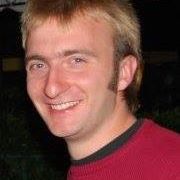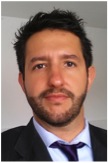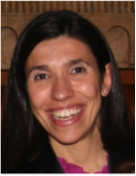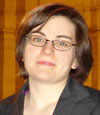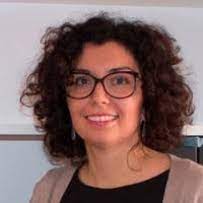Studiare
In questa sezione è possibile reperire le informazioni riguardanti l'organizzazione pratica del corso, lo svolgimento delle attività didattiche, le opportunità formative e i contatti utili durante tutto il percorso di studi, fino al conseguimento del titolo finale.
Calendario accademico
Il calendario accademico riporta le scadenze, gli adempimenti e i periodi rilevanti per la componente studentesca, personale docente e personale dell'Università. Sono inoltre indicate le festività e le chiusure ufficiali dell'Ateneo.
L’anno accademico inizia il 1° ottobre e termina il 30 settembre dell'anno successivo.
Calendario didattico
Il calendario didattico indica i periodi di svolgimento delle attività formative, di sessioni d'esami, di laurea e di chiusura per le festività.
| Periodo | Dal | Al |
|---|---|---|
| I sem. | 2-ott-2017 | 31-gen-2018 |
| II sem. | 1-mar-2018 | 15-giu-2018 |
| Sessione | Dal | Al |
|---|---|---|
| Sessione invernale d'esame | 1-feb-2018 | 28-feb-2018 |
| Sessione estiva d'esame | 18-giu-2018 | 31-lug-2018 |
| Sessione autunnale d'esame | 3-set-2018 | 28-set-2018 |
| Sessione | Dal | Al |
|---|---|---|
| Sessione di laurea estiva | 18-lug-2018 | 18-lug-2018 |
| Sessione di laurea autunnale | 22-nov-2018 | 22-nov-2018 |
| Sessione di laurea invernale | 20-mar-2019 | 20-mar-2019 |
| Periodo | Dal | Al |
|---|---|---|
| Vacanze di Natale | 22-dic-2017 | 7-gen-2018 |
| Vacanze di Pasqua | 30-mar-2018 | 3-apr-2018 |
| Festa del Santo Patrono - S. Zeno | 21-mag-2018 | 21-mag-2018 |
| Vacanze estive | 6-ago-2018 | 19-ago-2018 |
Calendario esami
Gli appelli d'esame sono gestiti dalla Unità Operativa Segreteria Corsi di Studio Scienze e Ingegneria.
Per consultazione e iscrizione agli appelli d'esame visita il sistema ESSE3.
Per problemi inerenti allo smarrimento della password di accesso ai servizi on-line si prega di rivolgersi al supporto informatico della Scuola o al servizio recupero credenziali
Per dubbi o domande leggi le risposte alle domande più frequenti F.A.Q. Iscrizione Esami
Docenti
 mariacaterina.baruffi@univr.it
mariacaterina.baruffi@univr.it
 maurizio.boscaini@univr.it
maurizio.boscaini@univr.it
 federico.busato@univr.it
federico.busato@univr.it
 gino.mariotto@univr.it
gino.mariotto@univr.it
 franco.zivcovich@univr.it
franco.zivcovich@univr.it
Piano Didattico
Il piano didattico è l'elenco degli insegnamenti e delle altre attività formative che devono essere sostenute nel corso della propria carriera universitaria.
Selezionare il piano didattico in base all'anno accademico di iscrizione.
1° Anno
| Insegnamenti | Crediti | TAF | SSD |
|---|
2° Anno Attivato nell'A.A. 2018/2019
| Insegnamenti | Crediti | TAF | SSD |
|---|
3° Anno Attivato nell'A.A. 2019/2020
| Insegnamenti | Crediti | TAF | SSD |
|---|
| Insegnamenti | Crediti | TAF | SSD |
|---|
| Insegnamenti | Crediti | TAF | SSD |
|---|
| Insegnamenti | Crediti | TAF | SSD |
|---|
Legenda | Tipo Attività Formativa (TAF)
TAF (Tipologia Attività Formativa) Tutti gli insegnamenti e le attività sono classificate in diversi tipi di attività formativa, indicati da una lettera.
Linguaggio programmazione Python (2019/2020)
Codice insegnamento
4S007127
Docente
Coordinatore
Crediti
2
Offerto anche nei corsi:
- Linguaggio programmazione Python del corso Laurea in Informatica
- Linguaggio programmazione Python del corso Laurea in Biotecnologie
- Linguaggio programmazione Python del corso Laurea in Matematica Applicata
- Linguaggio programmazione Python del corso Laurea magistrale in Ingegneria e scienze informatiche
- Linguaggio programmazione Python del corso Laurea magistrale in Medical bioinformatics
- Linguaggio programmazione Python del corso Laurea magistrale in Mathematics
- Linguaggio programmazione Python del corso Laurea magistrale in Molecular and medical biotechnology
- Linguaggio programmazione Python del corso Laurea magistrale in Biotecnologie agro-alimentari
- Linguaggio programmazione Python del corso Laurea magistrale in Biotecnologie per le biorisorse e lo sviluppo ecosostenibile
Lingua di erogazione
Italiano
Settore Scientifico Disciplinare (SSD)
NN - -
Periodo
I semestre dal 1-ott-2019 al 31-gen-2020.
Obiettivi formativi
Acquisizione di una competenza adeguata per la programmazione di base in Python con particolare enfasi allo sviluppo di algoritmi e all'analisi di dati numerici e testuali.
Il calendario del corso è pubblicato nell'e-learning.
Programma
Introduzione a Python (tipi, strutture dati, istruzioni condizionali, cicli, scrittura di script e funzioni). Implementazione in Python di algoritmi classici attraverso la produzione assistita di software e la realizzazione di progetti specifici. Introduzione all'utilizzo di librerie e strumenti per l'analisi di dati numerici e testuali.
| Autore | Titolo | Casa editrice | Anno | ISBN | Note |
|---|---|---|---|---|---|
| Maurizio Boscaini | Imparare a programmare con Python (Edizione 1) | Apogeo | 2017 | 9788850333981 | |
| Allen B. Downey | Think Python: How to Think Like a Computer Scientist 2nd Edition (Edizione 1) | O'Reilly Media | 2015 | 1491939362 |
Modalità d'esame
Il corso prevede l'acquisizione di 2 CFUdi tipologia D (attività a scelta dello studente). La frequenza al corso non è obbligatoria. La prova finale richiederà di svolgere esercizi al PC su argomenti sviluppati durante il corso. L'esito della prova finale sarà di tipo passato/non passato senza voto.
In relazione alla situazione derivante dall'emergenza Coronavirus la modalità d’esame sopra riportata viene modificata per la sessione estiva 2020, in accordo con le indicazioni di ateneo prova scritta con modalità telematica, eventualmente integrata da in prova orale con modalità telematica.
Tipologia di Attività formativa D e F
Insegnamenti non ancora inseriti
Prospettive
Avvisi degli insegnamenti e del corso di studio
Per la comunità studentesca
Se sei già iscritta/o a un corso di studio, puoi consultare tutti gli avvisi relativi al tuo corso di studi nella tua area riservata MyUnivr.
In questo portale potrai visualizzare informazioni, risorse e servizi utili che riguardano la tua carriera universitaria (libretto online, gestione della carriera Esse3, corsi e-learning, email istituzionale, modulistica di segreteria, procedure amministrative, ecc.).
Entra in MyUnivr con le tue credenziali GIA: solo così potrai ricevere notifica di tutti gli avvisi dei tuoi docenti e della tua segreteria via mail e a breve anche tramite l'app Univr.
Prova Finale
Alla prova finale sono riservati 3 crediti. L'esame di laurea consiste in un colloquio che può essere basato su un breve elaborato scritto, un esame orale, o un esame scritto. La forma e i contenuti dell'esame vengono concordati tra lo studente e il docente referente (relatore), il quale sarà anche membro della Commissione d'esame. Il colloquio può riguardare approfondimenti di argomenti non trattati durante la normale attività didattica, oppure può mettere in luce problematiche e metodologie affrontate durante un'attività di tirocinio. Su proposta del relatore la prova finale/elaborato può essere compilata e discussa in lingua straniera.
Il punteggio finale di Laurea è stabilito da una apposita Commissione di Laurea secondo le modalità indicate nel Regolamento di Ateneo, che esprime un giudizio finale in centodecimi con eventuale lode.
Il relatore dell'esame di laurea potrà essere un qualunque docente strutturato dell'Ateneo che soddisfa almeno uno dei seguenti requisiti: componente del Collegio Didattico del corso di laurea, oppure componente del Dipartimento di Informatica, oppure che insegna in un SSD presente nel piano del corso di laurea.
Il punteggio minimo per il superamento dell'esame finale è di 66/110. II voto di ammissione è determinato rapportando la media pesata sui CFU degli esami di profitto a 110 e successivamente arrotondando il risultato all'intero più vicino. A parità di distanza, si arrotonda all'intero superiore. Per media degli esami di profitto si intende la media ponderata sui crediti. E' previsto un incremento al massimo di 8/110 rispetto al voto di ammissione, di cui 4 punti riservati alla valutazione dell'esame di laurea da parte della commissione di esame composta da due docenti e 4 punti riservati alla valutazione del curriculum della/o studentessa/studente. La valutazione del curriculum avviene attraverso un calcolo basato sul seguente schema (che tiene conto in maniera positiva di eventuali lodi e periodi Erasmus ed in maniera negativa di eventuali anni fuori corso): se in corso: 3,5 + 0,2 * numero lodi; se fuori corso: 3,5 –0,5 * numero anni fuori corso + 0,1 * numero lodi; 1 punto ogni 3 mesi di Erasmus effettuato.
L'attribuzione della lode, nel caso di un incremento che porti ad una votazione che raggiunga o superi 110/110, è a discrezione della Commissione di Laurea nonché attribuita se il parere dei membri della commissione è unanime.
Elenco delle proposte di tesi e stage
| Stage | Area di ricerca |
|---|---|
| Correlated mutations | Argomenti vari |
Modalità di frequenza
Come riportato nel Regolamento Didattico, la frequenza al corso di studio non è obbligatoria.

 045 802 7823
045 802 7823












